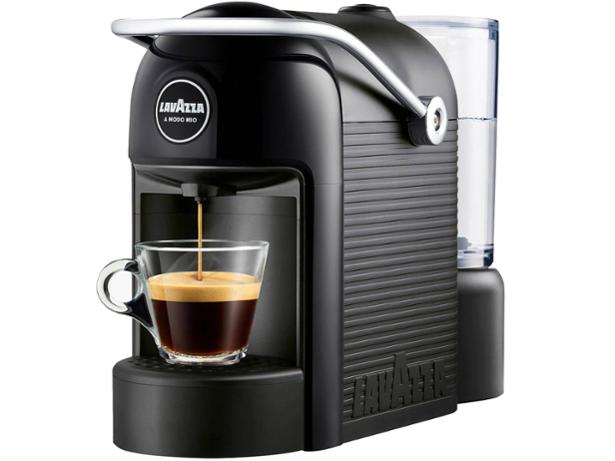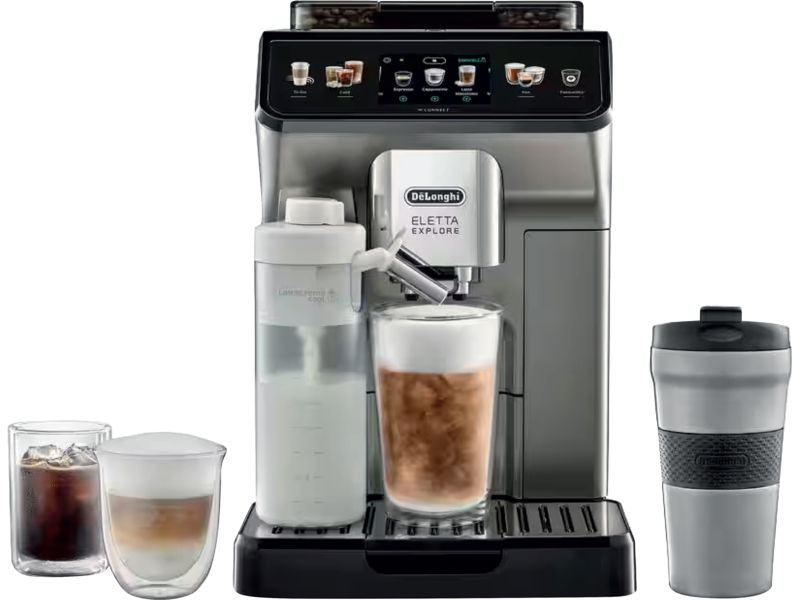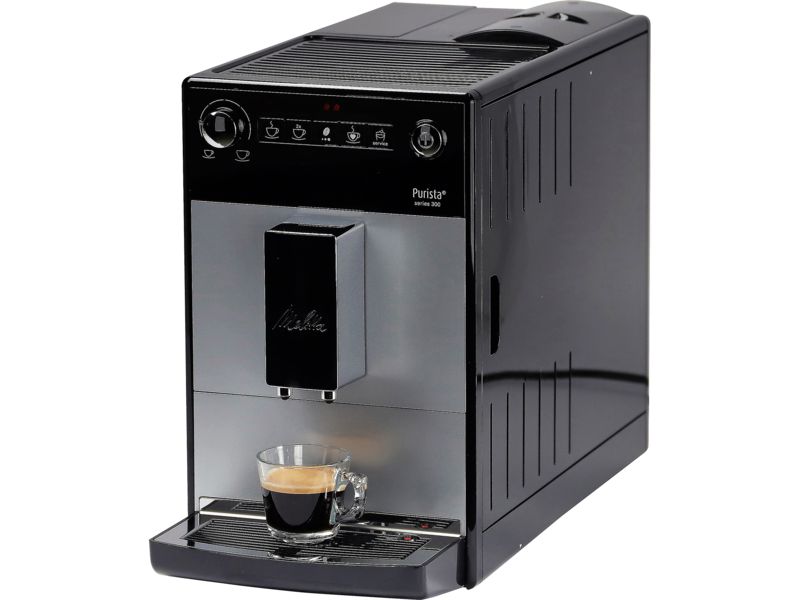By clicking a retailer link you consent to third party cookies that track your onward journey. If you make a purchase, Which? will receive an affiliate commission which supports our mission to be the UK's consumer champion.
Reusable, recyclable and compostable coffee pods

The coffee industry is evolving in an effort to make it easier for consumers to recycle single-serve coffee pods. If you're looking for a way to reduce the waste from your daily coffee routine, it could be worth swapping over to recyclable or compostable pods.
Regular coffee pods are usually made from plastic or aluminium, or a mix of both. Unfortunately, these materials can take up to 500 years to decompose naturally in a landfill. To combat the problem, big-name brands including Nespresso, Dolce Gusto and Illy have backed schemes that attempt to make recycling less fiddly.
Our extensive guide highlights the various recyclable and compostable coffee pods available to buy (and how to dispose of them). We've also gone hands-on with a selection of popular compostable coffee pods to uncover the tastiest of the bunch, as voted for by an expert panel of tasters.
See our best pod coffee machines.
The problem with coffee pods and capsules

Although some coffee pods are technically recyclable, you'll need to dismantle, empty and clean them before you can chuck them into your household recycling bin. The planet will thank you for your efforts, but the process can be awkward and time-consuming.
We've seen various coffee pod brands setting up recycling schemes over the past couple of years. It's a step in the right direction for sustainability, but these schemes aren't always convenient. For example, some rely on you leaving used your coffee pods at specific drop-off locations, but these spots can be far and few between.
If you live far from a pod drop-off point or aren't able to use your pod brand's recycling scheme, an interesting alternative is the Dualit EcoPress. This gadget lets you empty your used capsules of coffee grounds so you can rinse and recycle the aluminium in your regular recycling bin.
See our guide to the Best reusable coffee cups and travel mugs.
Reusable (refillable) coffee pods

Individually packed, pre-filled coffee pods used in capsule coffee machines are delightfully convenient, but the packaging can sometimes prove a pain to recycle. And in some cases, it's not recyclable at all.
Reusable coffee capsules can be filled up with ground coffee, used with your capsule machine, then cleaned out for reuse.
- They're usually made of plastic or stainless steel.
- They're designed to work with popular coffee pod systems, and will only work with that specific brand of pod machine.
- You can buy refillable pods for Nespresso and Dolce Gusto machines.
- Prices range from around £3-30 per reusable capsule. Plastic capsules tend to be cheaper than metal ones.
Reusable capsules not only reduce the number of pods you power through per week, you'll be able to use any ground coffee you like.
Reusable coffee pods: our test
To see if reusable coffee pods for Nespresso and Dolce Gusto are worth buying, we've been hands-on with pods from brands such as SealPod and WayCap.
On a mission to find the tastiest, we tried four pods for Nespresso machines (as this is the most popular type) and one that works with Dolce Gusto machines. Our shortlist comprised a mix of plastic and stainless steel models, with differing designs. Some had a reusable lid, while others used disposable stickers instead.
For each reusable pod in our test, we checked how easy it was to fill, seal, use and clean. We also asked our panel of coffee-tasting experts to blind-taste espresso made with each capsule.
We used the same type of ground coffee for each, so we could compare how well it turned out using the different pods.
What we found
All the reusable coffee capsules we tested were fairly simple to use, although some were a little trickier to seal than others, and one was especially difficult to clean. Some of the metal pods were very hot after extraction, although most advise you to leave the pod for a few minutes before removing it.
Our panel didn’t think any of the capsules produced particularly good coffee, though. It tended to be thinner and less well-rounded. The Lictin and WayCap pods made especially poor brews.
Overall, we thought the SealPod capsules made the best coffee, but they still have disposable parts you need to keep buying, and are more expensive in the first place. The plastic Alchemy pods made decent coffee, so these could be a good alternative.
Reusable coffee pods: our verdict
Here’s a rundown of the pods we tested and our verdict on each.
| Price | Works with | Our verdict | |
|---|---|---|---|
| Alchemy Refillable Pods (plastic) | *£10.52 (six capsules per pack) from Alchemy Superior Goods | Nespresso | Easy to use, makes OK coffee and affordable |
| Lictin Reusable Coffee Capsules (plastic) | Currently unavailable | Nespresso | Difficult to clean and makes disappointing coffee |
| SealPod Reusable capsules (stainless steel) | £62.90 (five capsules per pack) from Amazon | Nespresso | A little better than the others overall, but expensive and uses fiddly disposable sticker seals |
| WayCap Refillable capsules (stainless steel) | *£21.96 (one capsule per pack) from WayCap | Nespresso | Pricey, slightly tricky to seal and makes disappointing coffee |
| SealPod DGpod Reusable capsules (stainless steel) | *£32.18 (one capsule per pack) from SealPod | Dolce Gusto | Makes decent coffee, but expensive, requires disposable paper filters and careful positioning |
*These products are only available from non-UK sellers, so extra charges for tax and shipping may apply.
If you’re a capsule machine owner looking for an alternative to single-serve pods, reusable pods could be worth a try. But they aren’t as straightforward to use as disposable capsules, so they might take some time to get used to. The pressure at which you tamp (compress) the coffee grounds as well as the pressure of the water passing through it can affect the results you get, so finding the optimal setup could involve some trial and error.
It’s also worth bearing in mind that the time you spend filling, emptying and cleaning these pods somewhat negates the convenience of using pods in the first place. And if you have a favourite Nespresso or Dolce Gusto coffee, you won’t be able to get hold of this for your refillable pods either.
Recyclable coffee pods

To reduce the environmental impact of their coffee ranges, big-name brands have introduced pods made of materials they claim are recyclable or biodegradable, though we've not tested the viability of these in practice.
Here’s a closer look at how different coffee pod brands compare:
| Pod system | Recyclable pods | Compostable pods |
|---|---|---|
| Nespresso | Yes | No |
| Nespresso-compatible | Varies between each brand | Yes |
| Lavazza | Yes | Yes |
| Dolce Gusto | Yes | No |
| Tassimo | Yes | No |
| Illy | Yes | Yes |
| Dualit | Yes | Yes |
Podback: Nespresso, Dolce Gusto and Tassimo pod recycling

The owners of the UK’s three biggest coffee pod brands have joined forces to establish a nationwide recycling scheme for single-serve pods.
The coffee pod recycling scheme, known as Podback, launched in April 2021. Aiming to provide customers with simple and easy ways to recycle their pods, the not-for-profit organisation was created by Nestlé and Jacobs Douwe Egberts (JDE). As a team, these big-name brands also own Nespresso, Nescafé Dolce Gusto, Tassimo, L'OR and Starbucks at Home.
You can recycle used coffee pods through Podback in several ways:
- Collect+ There are more than 6,500 Collect+ drop-off points in local stores. Customers can take used pods to these spots, which include newsagents, petrol stations and shopping centres, where they'll be dealt with by Yodel. Recycling bags can be ordered directly from any of the participating Podback brands online and will soon be available in supermarkets too.
- Kerbside collection The Podback group is aiming to make recycling easier by having coffee pods collected alongside regular household waste and recycling. You can check whether your area is eligible, how each council will run the collection service and order recycling bags via the Podback website. We're told that Podback is also speaking with other local authorities across the UK, so we're interested to see how the scheme expands over time.
- Recycling centre If your local authority provides Podback recycling containers at household waste recycling centres, you can take your used pods here for disposal.
- 'Handover at home' The Podback organisers are in discussions with major retailers, so consumers will potentially be able to hand over their used pods every time they have groceries delivered. However, this scheme has not yet been launched.
As of January 2023, 14 coffee brands are reported to have partnered with Podback, including Illy, Nescafé, Nespresso, Tassimo and Starbucks, with this number still steadily growing.
A recent addition – and the one of the first supermarkets in the UK to join the Podback scheme – is Aldi. From 2023, shoppers can recycle Aldi's own-label pods via the scheme, a move the supermarket says will help recycle up to 268 tonnes of plastic and 20 tonnes of aluminium per year.
Read our Dolce Gusto coffee machine reviews and Tassimo coffee machine reviews.
Nespresso pod recycling in-store
As well as the Podback scheme, there are two other options to help you recycle your used capsules if you're a Nespresso customer. For both, you'll need to request a free recycling bag from any Nespresso boutique or online – each bag holds up to 65 Vertuo capsules or 150 Original capsules.
- Doorstep collection Visit the Nespresso site to arrange a doorstep collection from Monday to Friday between 8am and 8pm.
- Drop-off in-store Used capsules can be dropped off at Nespresso Boutique locations up and down the country.
The brand's capsules are made from aluminium, which it describes as an 'infinitely recyclable material'. It also claims aluminium is 'unparalleled at protecting the coffee inside from light, moisture and air'.
Read our Nespresso coffee machine reviews.
Lavazza Eco Caps pod recycling
Lavazza has its own range of compostable pods – Eco Caps. Once you're done enjoying your espresso, these caps can be chucked into a food waste bin. They are then sent to an industrial composting facility and used to make nutrient-rich soil. But you should check your local council's rules for disposal beforehand.
If you don't have access to food waste bins, you can turn to Lavazza's Eco Caps Composting Programme, which is managed through Terracycle. Lavazza Eco Caps can be disposed of in two ways: by leaving them at a public drop-off location during designated hours (there's an interactive map on the Terracycle website) or by setting up your own public drop-off location.
All Lavazza Eco Caps compatible with Nespresso coffee machines are accepted through the Eco Caps Composting Programme, as are Eco Caps compatible with Lavazza A Modo Mio coffee machines.
However, the following waste is not accepted:
- Lavazza capsules that are not Eco Caps
- Any other brand of beverage capsules
- Cardboard boxes or plastic packaging that contains coffee capsules
- Coffee bags
If there are no public drop-off points within a five-mile radius, you can set up your own by creating a TerraCycle account and filling out an online form.
Consult our Lavazza coffee machine reviews.
Dualit pod recycling
Technically, you can recycle Dualit’s plastic NX pods in your usual collection if you dismantle, empty and clean them out, although this is onerous and plastic pods can be difficult for local authorities to recycle in practice.
Dualit also sells a range of compostable capsules. These need to be composted industrially using your local council’s food waste collection scheme (if available in your area).
Read our Dualit coffee machine reviews.
Compostable coffee pods

If you’re looking to reduce the amount of household waste you create, kicking your coffee pod habit could be a good place to start. But you don't need to abandon your machine entirely – our blind taste tests have uncovered some exceptionally tasty compostable pods.
Why choose compostable pods?
Nespresso’s own aluminium pods can be recycled via its scheme, but plenty of compatible pods can’t as they're made of plastic. Even after you've dismantled and cleaned them, you may still struggle to find a facility that's equipped to deal with them.
According to the manufacturers, compostable capsules biodegrade into harmless substances. If several people at home are keen coffee drinkers, you could be getting through four or more pods per day, so being able to compost your used pods could cut down on your household waste.
You can deal with the waste via one of two methods:
- Industrial composting – these pods need additional heat, air or water to break down, and need to go in kerbside food collection bins (if available in your area).
- Home compost heap – compostable pods will break down on your home compost heap at a similar rate to other organic matter.
Compostable vs biodegradable: what’s the difference?
In order for a product to be compostable, it has to meet a specific EU standard (EN 13432). This includes various requirements, one is that after 12 weeks at least 90% of the product should have disintegrated enough to fit through a 2mm sieve.
Biodegradable materials disintegrate in soil, air and water over time. But there's no set timeline for this term, so a biodegradable material could take many years to break down.
How to store compostable pods
The materials used to make compostable pods are permeable, so the flavours won't last as long in your cupboard as they might in plastic pods. As a result, you may want to avoid buying in bulk as the coffee can deteriorate over time.
Check the manufacturer's instructions for details on where to store your pods as this differs by brand. Lavazza told us to keep them safe in a 'cool, dry place'. Blue Goose (a brand included in our taste test) also suggested somewhere dry, adding that 'a tin or jar is perfect, or a bowl next to your coffee machine'. Dualit told us not to remove its compostable pods from its white bags until it's time to use them – this will help to maintain optimum freshness.
Most of the time, though, you should be keeping your collection in an airtight container that's in a cool, dry place. Keep your pods away from the fridge or freezer.
Read more about biodegradable and compostable plastics.
Are there any eco-friendly alternatives to capsule machines?

Pod machines are undeniably tempting. They make it quick and easy to make a consistently good brew, without worrying about measuring and preparing your coffee correctly.
But it's worth considering the alternatives, as with a little bit of practice they can quickly make tasty coffee and you can sidestep the accompanying eco guilt. Take a closer look at:
- Bean-to-cup coffee machines – these can be pricey, but they grind coffee on demand and make your drink for you.
- Ground coffee or pump espresso machines – these use ground coffee you measure out and pat down, ready for extraction.
See our guide to the Best espresso machines for 2024.



